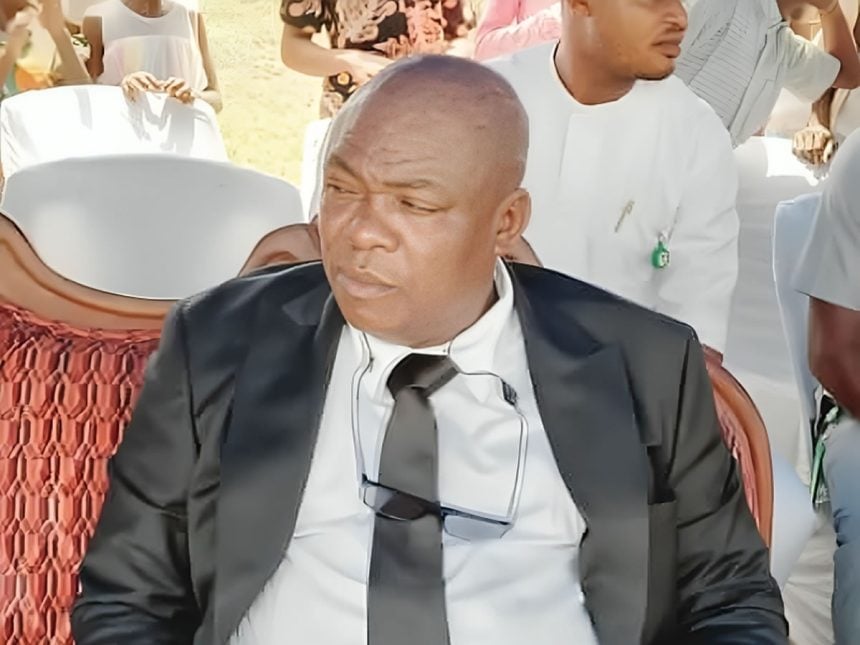Prince Marcel Amadioha is the former interim management committee chairman, former sole administrator and the current executive chairman of Ohaji/Egbema Local Government Area in Imo State. In this interview by JOHNKENNEDY UZOMA, he speaks on national issues and developments in his council area.
There is growing public opinion on whether President Bola Tinubu deserves another term. What is your view?
Yes. The problem with Nigeria is that we often forget where we are coming from and where we are going. If Nigerians truly understood our journey, they wouldn’t blame President Tinubu for all our developmental challenges.
The way President Tinubu has confronted the problems of this country shows that he has courage. For example, he tackled the long-standing issue of fuel subsidy. If past presidents had taken the bold steps he has taken, like reforming the NNPC, things would have been much better by now. Former President Goodluck Jonathan attempted to remove the subsidy but lacked the political will to follow through. Tinubu came in and decisively removed it.
So far, he has managed the consequences of the subsidy removal reasonably well. Prices of goods are beginning to stabilise and electricity supply has improved.
On insecurity, it didn’t start with him. The crisis began in the North East and spread to the North Central and South East. It is unrealistic to expect that the President would resolve such deeply rooted issues overnight. However, he is tackling it with a gradual and strategic approach.
Our problem as a people is impatience. Instead of giving leaders the time and support to implement solutions, we are quick to criticise them, often politically. President Tinubu remains focused and undeterred. His age does not affect his ability to make sound decisions.
Frankly, Nigeria has not had a better president, even dating back to the military era. Leadership alone is not our problem; we also need a change of mindset. I believe that if given another opportunity, President Tinubu will perform even better.
How has your council benefited from local government autonomy?
Local government autonomy has brought immense benefits to my council. The achievements we have recorded within a short time speak volumes. In my experience, it has been truly functional and free from undue interference.
How would you describe your relationship with the state government?
Very robust. Governor Hope Uzodinma has played a fatherly role. Many of us are relatively new to the system, but the governor’s guidance and mentorship have helped us navigate effectively.
What major achievements have you recorded as council chairman?
I am proud to say we’ve achieved a lot, thanks to Governor Uzodinma’s support. From my days as IMC chairman to now as executive chairman, we have completed several key projects: Construction of water schemes across the communities; building of markets; renovation of the council secretariat at Mmahu Egbema, making it habitable for the first time in years; renovation of 12 health centres across the local government area; procurement and distribution of medical equipment to all health centres; and grading of rural and farm roads, especially during the last Christmas season
We also focus on human capital development. Last Christmas, over 200 women were empowered with N50,000 each to start petty trading. Our follow-up shows that many are doing well in their businesses.
How have you tackled insecurity in your local government area?
Before I became IMC chairman in 2020, Ohaji/Egbema was one of the most insecure areas in Nigeria. Contractors abandoned projects due to fear of kidnapping and violence. But as a youth myself, I knew how to speak their language. We adopted a carrot-and-stick approach, engaging them and making them understand how their actions were underdeveloping our area. Today, insecurity has drastically reduced, and we no longer see unknown gunmen operating freely. We continue to work with security agencies to sustain the peace.
Some communities in your local government area still lack electricity. Why is that?
That is true, but it is important to understand the history. Areas like Awara Court have lacked electricity for years, mainly due to vandalism by some misguided youths. Even when efforts were made in the past to restore electricity, the infrastructure was destroyed.
We are engaging the oil companies operating in the area and working with the state government to restore power. But vandalism remains a major challenge.
How would you describe your relationship with oil companies in your area?
Honestly, oil companies have neglected our communities for years. Their minimal presence today is due to the intervention of Governor Hope Uzodinma. He insists they return to their host communities and reach agreements with them before government support is provided.
This approach has improved our relationship with them. In the past, governors would meet with oil companies in Government House without involving the communities. That has changed under Governor Uzodinma.
In which areas has Governor Uzodinma performed best?
In all honesty, the governor has performed impressively, especially in infrastructure, healthcare and security. He launched a Health Insurance Scheme that goes beyond civil servants to benefit people in rural communities. His work speaks for him.
I have also adopted his development style in my LGA, which has helped in building health centres and driving infrastructural development.
What is your view on the much-talked-about Charter of Equity in Imo politics?
To me, it’s a gentleman’s agreement, similar to political zoning. I am not against it, but it shouldn’t be used as a rigid criterion for electing a governor. Zoning can help balance representation, but in the end, democracy should be about competence and the will of the people.
How is Adapalm Nigeria Ltd., Ohaji, performing under your watch?
Adapalm is doing well. The mill and plantations are functioning, producing palm oil, palm kernel, and other products. After years of abandonment, they are now generating revenue for the state and making efforts to improve operations.
How is your relationship with ISOPADEC and NDDC?
The current Managing Director of ISOPADEC is doing an excellent job. He involves stakeholders in project planning and budgeting, and we have never had such inclusion before. We also conducted needs assessments based on community input, which has improved project relevance.
However, the relationship with the NDDC is less satisfactory. Their impact on our communities has been minimal. If not for the Governor’s intervention, they wouldn’t have completed even the two roads we now have.
Final thoughts?
Governance is about sincerity, commitment and the courage to do the right thing, even in difficult circumstances. With support from the state government and our people, we will continue to move Ohaji/Egbema forward.
READ ALSO: Two years of President Tinubu: A business perspective






